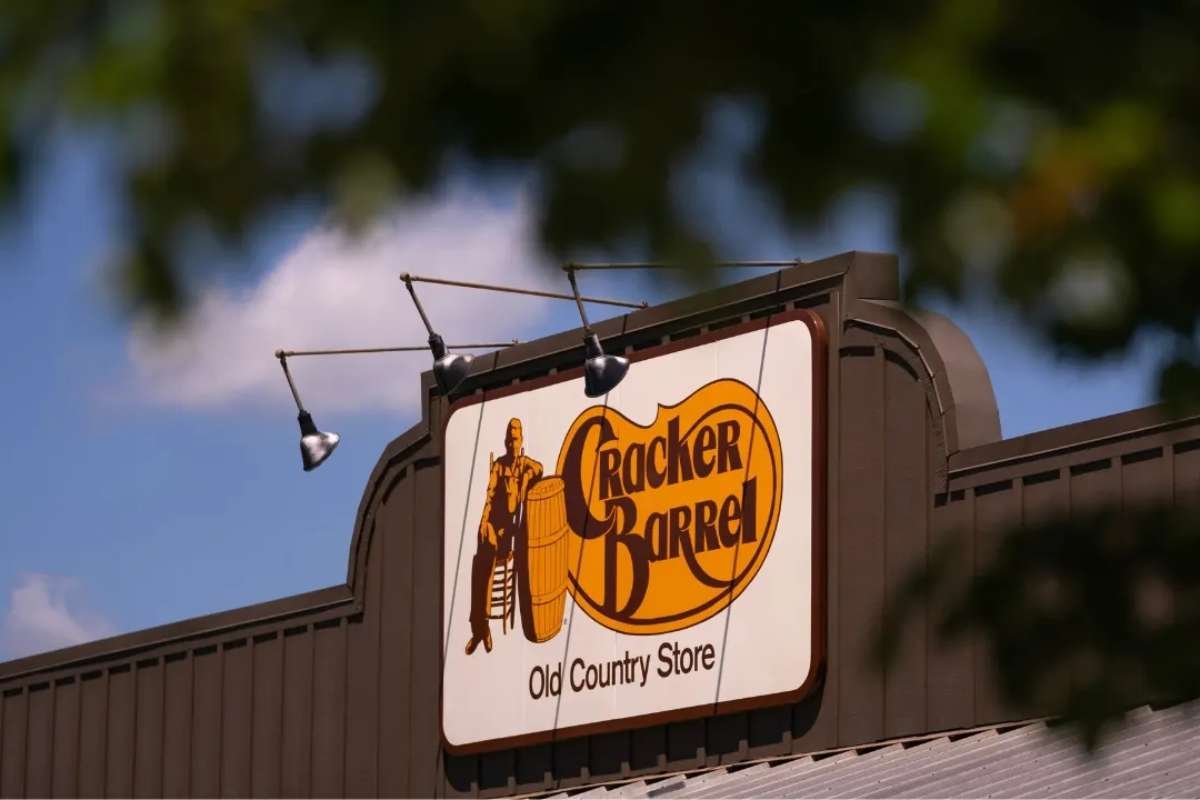Cracker Barrel Old Country Store lost nearly $100 million in market value Thursday after unveiling a redesigned logo that dropped its longtime illustration of a man leaning against a barrel.
Shares of the Lebanon, Tennessee-based restaurant chain fell $4.22, or 7.2%, to $54.80 during Thursday trading. The decline briefly deepened earlier in the day, when shares dipped to $50.27 before rebounding slightly, at one point erasing close to $200 million in market capitalization.
Brand Refresh Sparks Market Jitters
The new logo features a cleaner design showcasing only the company’s name, replacing the iconic image of “Uncle Herschel,” a figure that had been part of the brand for more than five decades. Cracker Barrel explained on its website that the original design was intended to evoke the atmosphere of a country store “where folks would gather around and share stories.”
In an August 18 press release, the company said the refreshed logo “is now rooted even more closely to the iconic barrel shape and wordmark that started it all.” While the illustration has been removed from the logo, Cracker Barrel emphasized that Uncle Herschel will remain “front and center” inside its restaurants and menus.
The redesign is part of a broader initiative led by CEO Julie Felss Masino, who last year acknowledged that the brand was “not as relevant as we once were.” Recent efforts have included updating store interiors, introducing new menu items, and gradually shifting away from the rustic aesthetic that has defined the chain since its founding in 1969.
Investor and Market Reactions
While logo redesigns rarely move markets, the sharp decline in Cracker Barrel’s share price highlights investor unease about the company’s strategic direction. For many businesses, branding is considered a vital asset, and abrupt changes can raise questions about customer loyalty and market positioning.
Marketing experts weighed in on the decision, with some describing the move as a misstep. Kevin Dahlstrom, founder of Bolt Health and a veteran marketing executive, called the rebrand a “fiasco,” noting that the company had possessed a unique and emotionally resonant brand identity. “The holy grail of marketing is to create a brand that customers give a damn about — and feel some ownership of. It’s exceedingly rare and when you have that — as Cracker Barrel did — you NEVER EVER abandon it, you only double down on it,” Dahlstrom wrote on social media.
Others described the new design as more “generic,” raising concerns that the simplified wordmark may weaken the distinctiveness of a brand known for its down-home character.
Despite the mixed reaction, Cracker Barrel reiterated that its values and core identity remain unchanged. “Our values haven’t changed, and the heart and soul of Cracker Barrel haven’t changed,” the company said in a statement, stressing that the restaurant experience will continue to reflect its traditional roots.
Balancing Tradition and Modernization
The logo update underscores the challenge of balancing brand heritage with the need to modernize. For Cracker Barrel, the goal is to attract younger customers while retaining its established base of diners who value the nostalgic appeal of its stores.
Industry observers note that such transitions are often delicate. A strong brand identity can take decades to build but only moments to disrupt if changes are not carefully managed. While it remains to be seen whether the new branding will resonate with customers, the immediate impact on Wall Street illustrates the high stakes of rebranding for legacy companies.
As Cracker Barrel moves forward with its broader modernization strategy, the company faces the task of proving that its updated look can coexist with the tradition that has defined it for more than half a century. Investors will be watching closely to see whether the changes strengthen customer engagement or risk diluting a brand long associated with comfort, familiarity, and consistency.
Visit Enterprise Wired for the most recent information.










